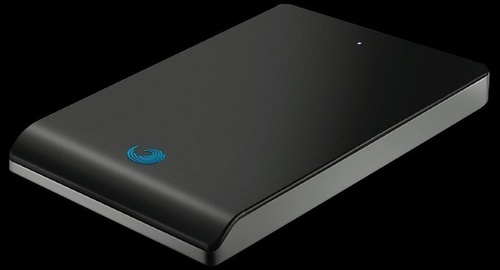Seagate & Samsung Developing Enterprise SSDs
Seagate and Samsung have announced that they have entered into a joint development and licensing agreement to develop and cross-license related controller technologies for solid state drive for enterprise storage applications.
Interestingly, the press release mentions Samsung’s flash memory technology specific to 30 nanometer-class MLC NAND, which is unusual as most enterprise SSDs uses SLC NAND. In any case, there shouldn't be any doubt in performance or durability as the jointly developed controller will be utilized in Seagate’s enterprise-class SSDs.
“Seagate has long recognized that solid state technology has an important role to play in the comprehensive solutions the storage industry will deliver today and in the future, particularly in the enterprise market,” said Steve Luczo, Seagate chairman, president and CEO. “Today’s agreement with Samsung will help us bring a compelling set of SSD innovations to the enterprise storage market, with benefits that range from enhanced performance, endurance and reliability to cost and capacity improvements. Overall, this agreement with Samsung strengthens our SSD solutions strategy, and positions Seagate well as global demand for storage continues on its strong growth path.”
”We are pleased to be jointly developing a high-performance SSD controller with Seagate for the enterprise storage market," said Dr. Changhyun Kim, senior vice president and Samsung Fellow, Memory product planning & application engineering, Semiconductor Business, Samsung Electronics. "Our green memory solution is designed to enable more energy-efficient server applications, which is expected to increase the use of NAND-based SSD storage in enterprise applications.”
Get Tom's Hardware's best news and in-depth reviews, straight to your inbox.
-
irh_1974 Nice to see two companies playing nice together rather than the usual rounds of litigation. Maybe the real winner here will be the consumer.Reply -
webbwbb irh_1974Nice to see two companies playing nice together rather than the usual rounds of litigation. Maybe the real winner here will be the consumer.Reply
That or at the end of the agreement they will both announce suits against each other and spend years fighting each other for no apparent reason. -
HansVonOhain If I were to choose from Samsung or Seagate, I would go with Samsung... They generally have better reliability and may also have lower costs that will benefit the consumer in the enterprise category.Reply -
HavoCnMe This is great news. When the enterprise tech starts taking off the consumer products will benefit from it and hopefully start the falling of SSD prices.Reply -
shin0bi272 unholygregorenterprise ssd's=big capacity=less $$ per gb =good for consumerI dont think that they will increase the capacity as much as you are thinking. Most enterprise servers use drives with capacities less than 500gb. they just have 8 slots or more in them to add capacity easily. With enterprise tech youre looking more at the decrease of power and heat and increasing the life cycle of the ssds. I doubt we will see sans with 14tB capacity all in SSDs any time soon. Would be cool to see a company with that kind of cash thoughReply -
wildwell It's a little early to speculate on where E-class SSD development could lead, but this partnership is nonetheless great news for the industry as a whole.Reply -
jsx82 Pei-chenSo the HDD will fail twice as fast. 0.5 * 0.5 = 0.25; not impressed.uhhh what?Reply
your math seems fine but your inference is not

